confirmed speakers
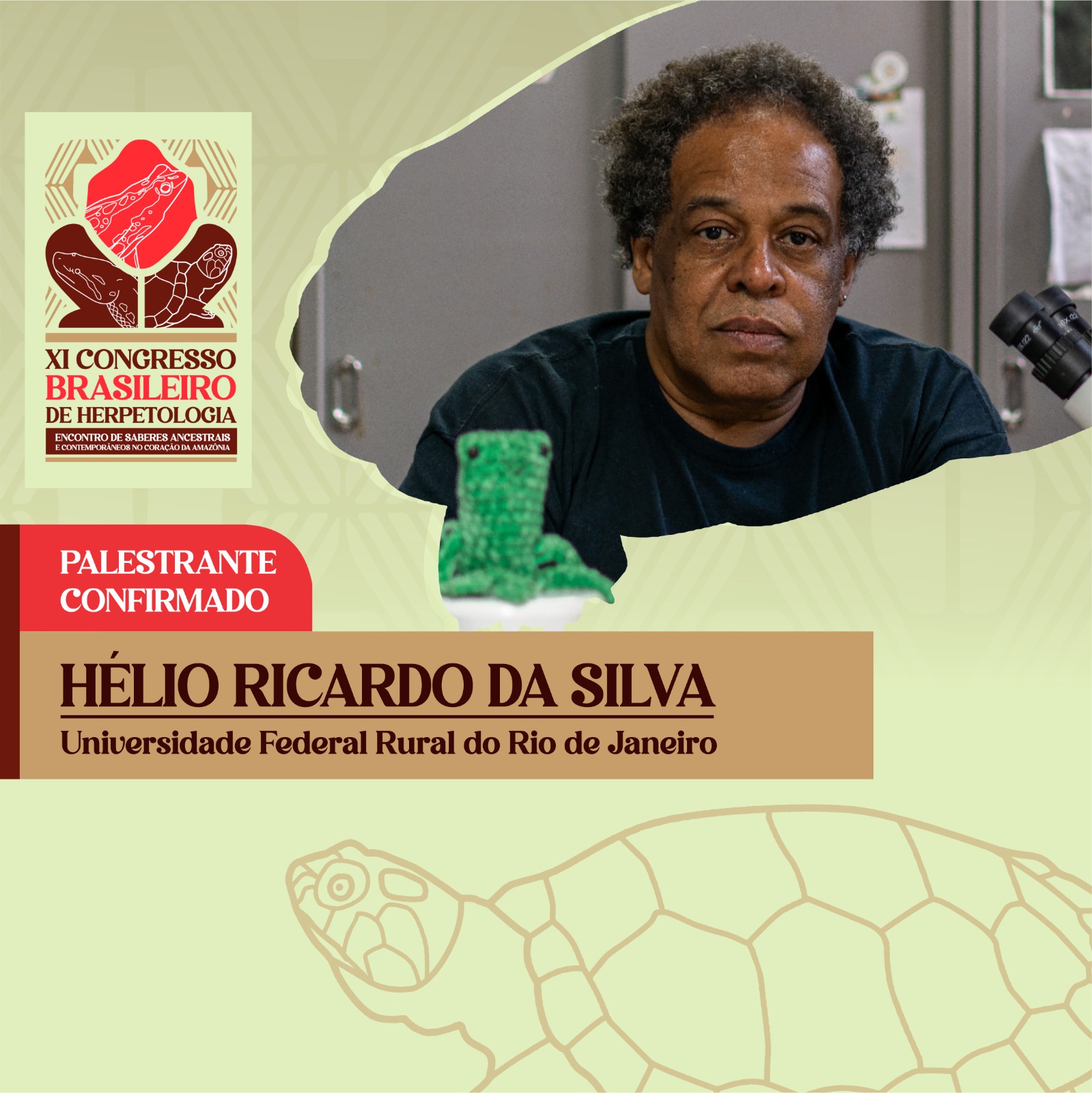
Hélio Ricardo da Silva
I am a professor at the Federal Rural University of Rio de Janeiro, teaching both undergraduate and graduate courses in Biological Sciences. During my studies, I was able to dedicate myself to research in the Natural History of amphibians, Comparative Anatomy, Systematics, and Biogeography of amphibians and reptiles. Most of my work is dedicated to the study of amphibians from the Atlantic Forest. During my undergraduate studies, I developed a passion for amphibians that use bromeliads and I have worked with groups that live in the environments provided by these plants. The most notable one involves the discovery that the tree frog Xenohyla truncata (Hylidae) includes fruits in its diet and may be responsible for dispersing the seeds of the plants it uses as food. More recently, I have dedicated myself to morphological studies of tadpoles and adults of Cycloramphidae and Bufonidae using traditional methods as well as CT-Scan technology. In addition, I continue to study Natural History and Systematics.
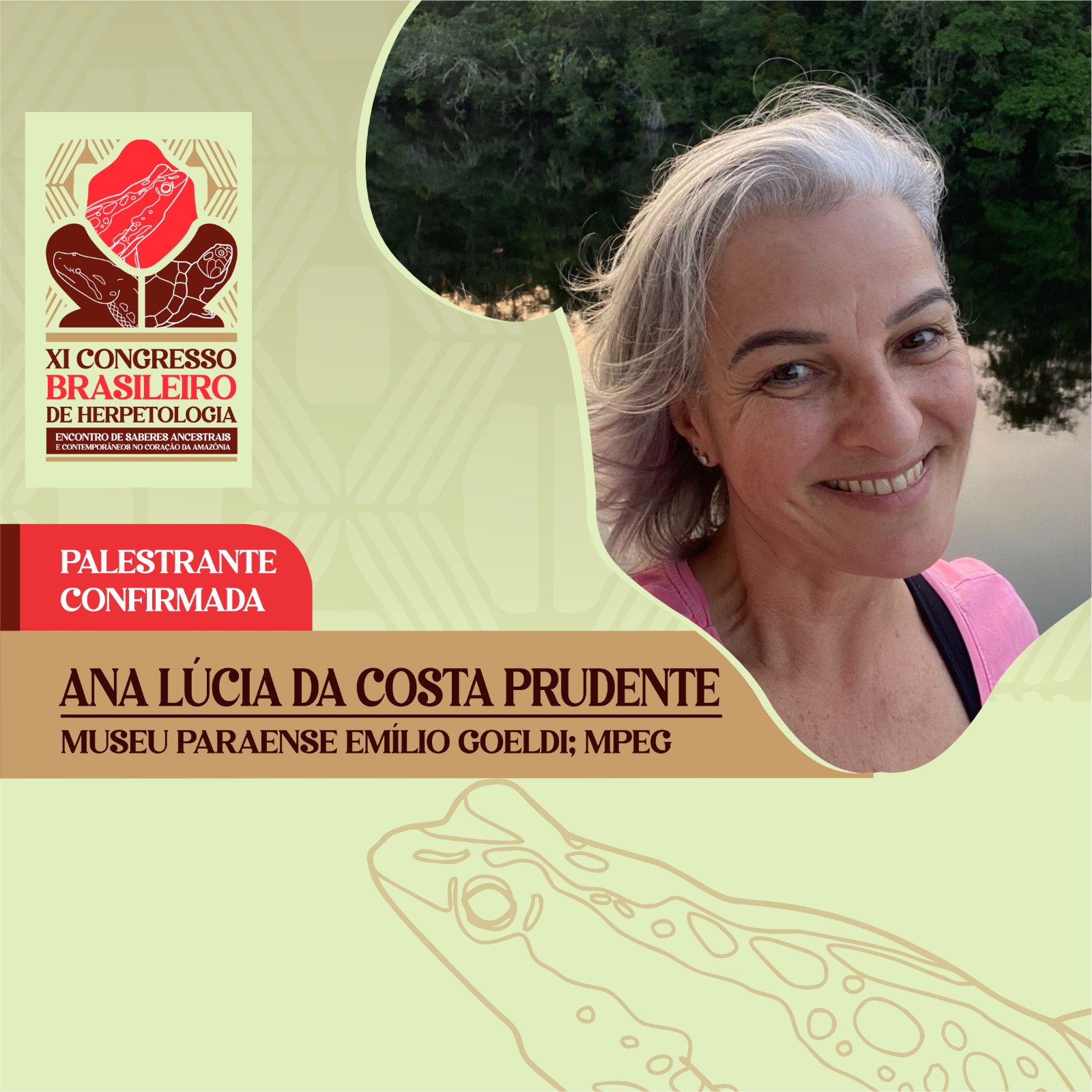
Ana Lúcia da Costa Prudente
She holds a degree in Biological Sciences from the Federal University of Uberlândia (1989), a master’s degree in Bioscience from PUC – RS (1993), a PhD in Zoology from UFPR (1998) and a post-doctorate from the University of São Paulo (2002). She is currently a full researcher at MPEG, and works as a professor of the Postgraduate Course in Zoology (PPGZOOL), in partnership with the Federal University of Pará (UFPA) and in the Biodiversity and Evolution Program (PPGBE) of MPEG. She has a productivity grant from CNPq. She has experience in the area of Zoology, with an emphasis on Systematics, Taxonomy and Biogeography of Reptiles, working mainly on the following themes: Snakes, Amazon, Morphology, Systematics and Biology. She was Coordinator of the PT1 Project of the CTPETRO Amazon Network since 2004. Vice-Coordinator of the PPGZOOL (master’s and doctorate) MPEG/UFPA for two terms: June 2008 to June 2010; and in March 2020 to June 2022. PPGZOOL Coordinator in the period 2010-2012. Head of the Zoology Coordination of MPEG 2015-2018. Vice-coordinator of Research and Postgraduate Studies (COPPG) of MPEG 2016-2018. Curator of the herpetological collection of the Museu Paraense Emílio Goeldi (MPEG) since 2000. Member of the CA-Zoology Advisory Committee of CNPq. Mother of two children (18 and 21 years old)

Adam Stow
Stow is a conservation biologist who uses genomic and environmental data to answer questions in conservation management, ecology, and evolution. His work seeks to understand the ecological and evolutionary processes that influence the persistence of animal populations. He investigates how human activities alter animal dispersal and the consequences of reduced genetic variation. Stow is interested in how changes in genetic variation and demography can alter social behavior and, consequently, influence dispersal and gene flow. His group works with a variety of vertebrate and invertebrate organisms in a variety of environments around the globe, including the Amazon rainforest.
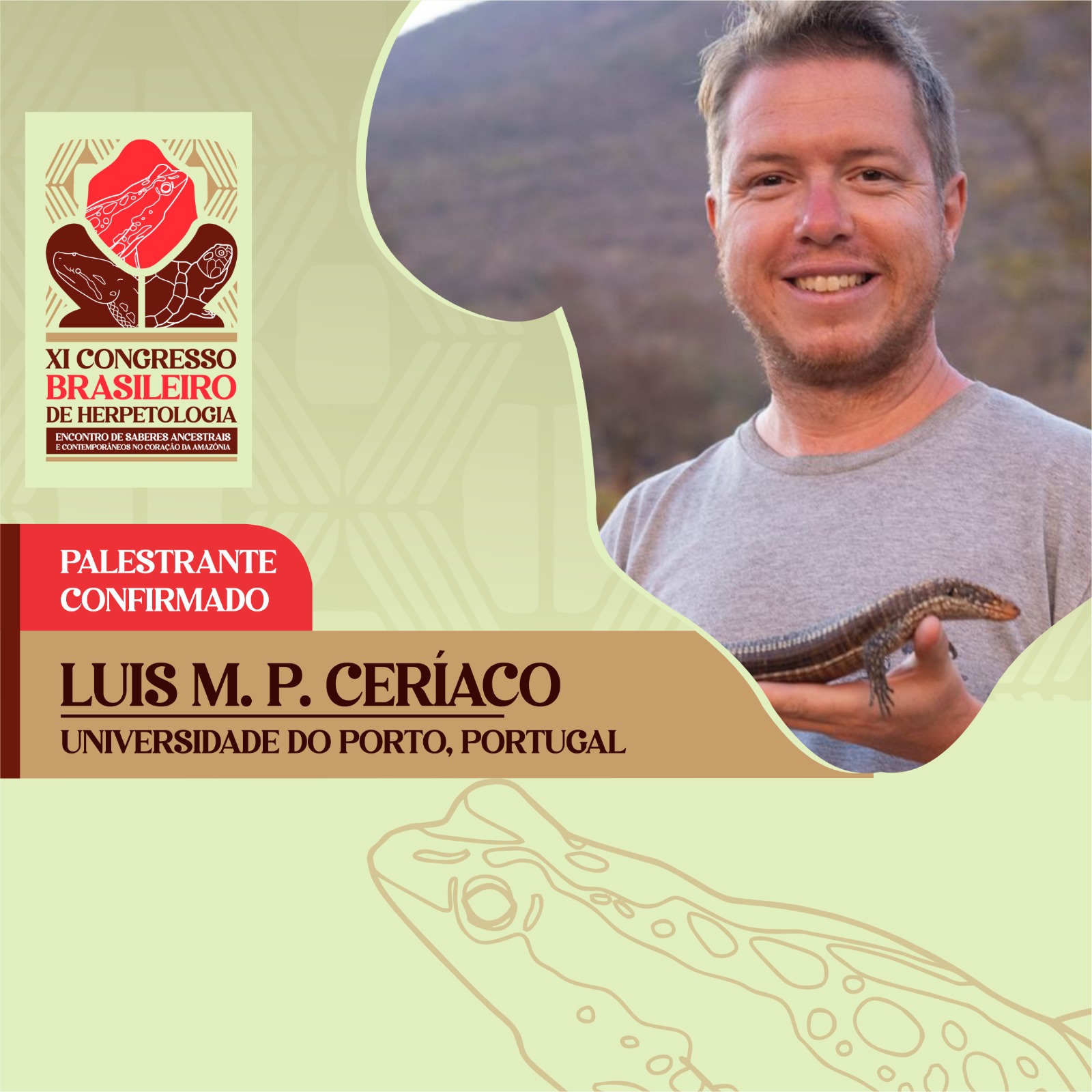
Luis M. P. Ceríaco
Herpetologist and historian of science, currently a researcher at the Center for Research in Biodiversity and Genetic Resources (CIBIO/InBIO) of the University of Porto (Portugal), where he leads the research group NATHIST – Natural History, Taxonomy and Collections. He is also an associate researcher in the herpetology sector of the National Museum of the Federal University of Rio de Janeiro and in the amphibian and reptile sector of the Carnegie Museum of Natural History. His main research interests include the systematics, taxonomy and biogeography of African amphibians and reptiles, the history of Portuguese-Brazilian zoology and the management of natural history collections. He has described over 40 taxa of vertebrates new to science and is a commissioner of the International Commission on Zoological Nomenclature. He has ongoing research projects in Angola, São Tomé and Príncipe, Guinea-Bissau and Brazil. When he is not in the field or in a museum, he enjoys reading books and walking his dog.
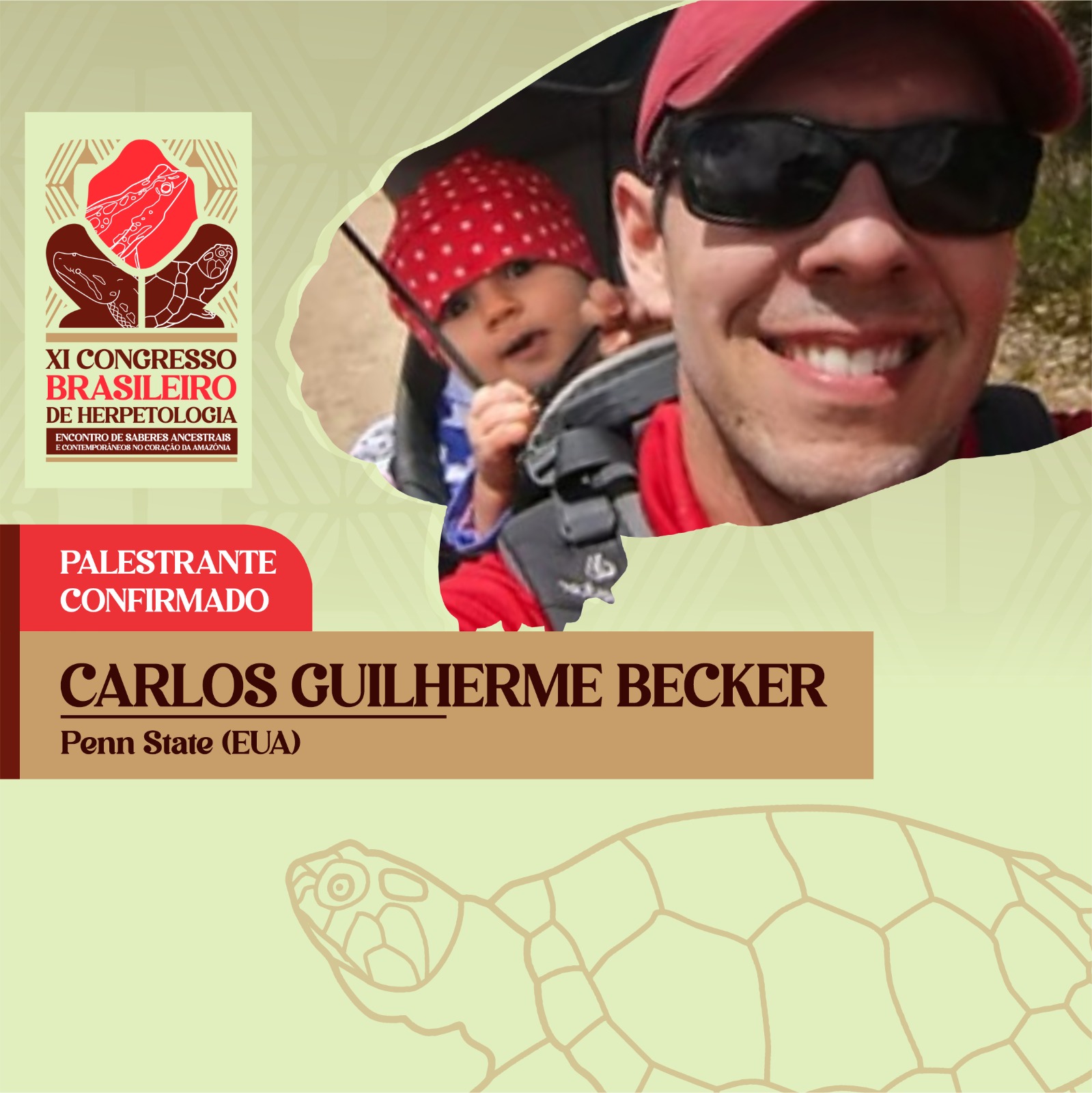
Carlos Guilherme Becker
Professor at Penn State University (USA) and a reference in studies on global changes and their consequences for tropical biodiversity. His research focuses on the impacts of deforestation and climate change on the dynamics of emerging diseases. Gui is widely recognized for the concept of “habitat split”, which investigates how the fragmentation of tropical forests compromises the connectivity between several essential habitats, affecting biodiversity and ecosystem services. Another central focus of his research is the preconditioning of the amphibian microbiome, which investigates how repeated exposures to low pathogen loads in the environment can strengthen the resistance of the skin microbiome to future infections. His work published in journals such as Science, PNAS and Ecology Letters offers ideas for promoting ecological resilience in fragmented ecosystems. Gui also leads scientific outreach initiatives, such as documentaries and educational materials, that connect science and society, contributing to the conservation of Brazilian biodiversity.
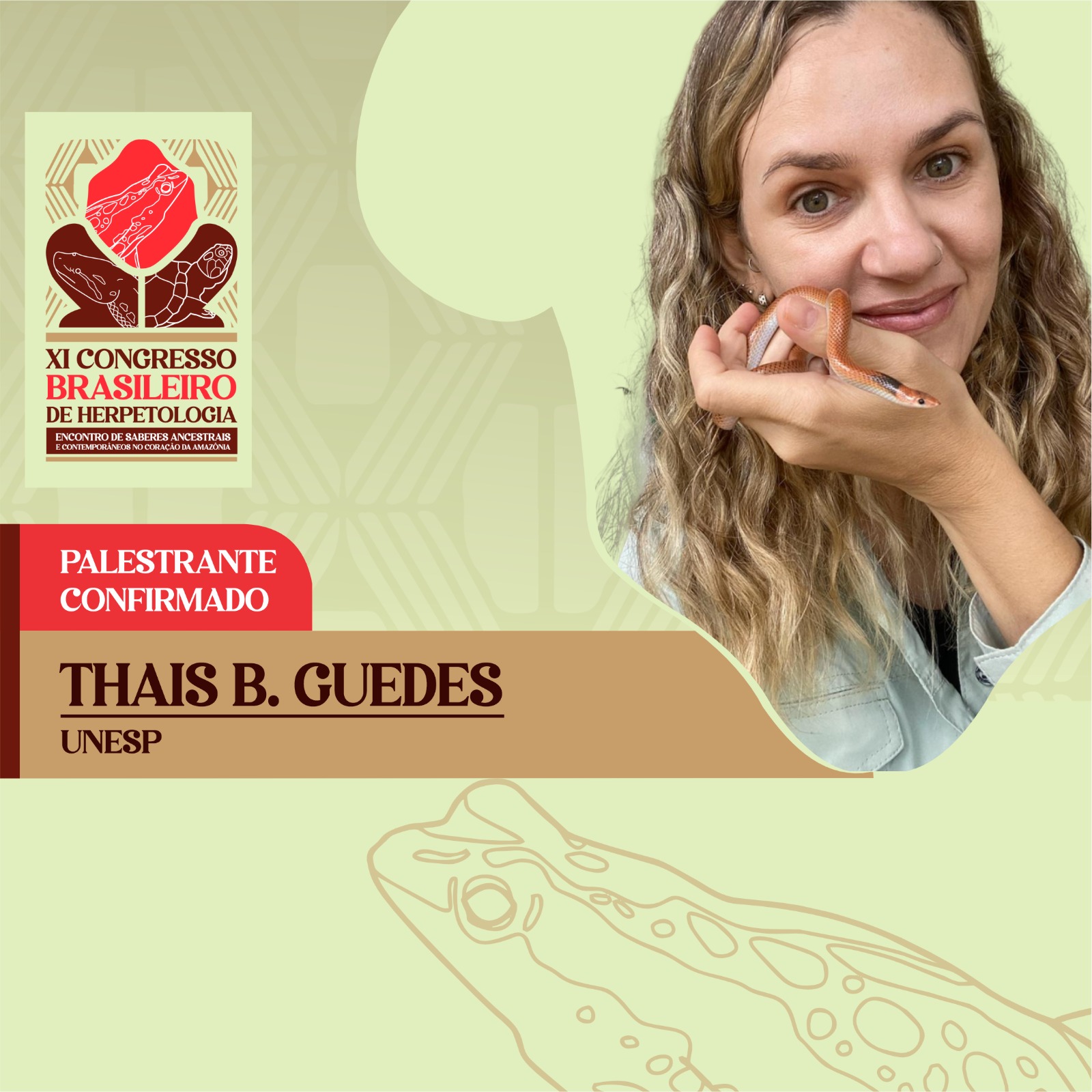
Thaís B. Guedes
She is a herpetologist and biogeographer. She is an Assistant Professor at the Department of Biodiversity of the Institute of Biosciences of the Universidade Estadual Paulista (UNESP, Rio Claro), a FAPESP Young Researcher and an Associate Researcher at the Gothenburg Global Biodiversity Center (Sweden). She is the author of the Brazilian List of Reptiles. Her main research interests include metric analyses of biodiversity, biogeography, macroecology and modeling of species distribution, natural history, systematics, taxonomy, reproductive biology and behavior using amphibians and reptiles (mainly snakes) as models in her studies. She actively participates in the elaboration of national and state red lists, contributing to the implementation of public policies for the conservation of herpetofauna. She is a member of the Technical Advisory Group of the National Action Plan for the Herpetofauna of the Northeast (GAT/PAN/ICMBio). She is a member of the editorial board of international scientific journals in the areas of Herpetology and Biogeography. It is committed to training young scientists at all levels, to popularizing science and also to diversity, equity, inclusion and well-being in science.
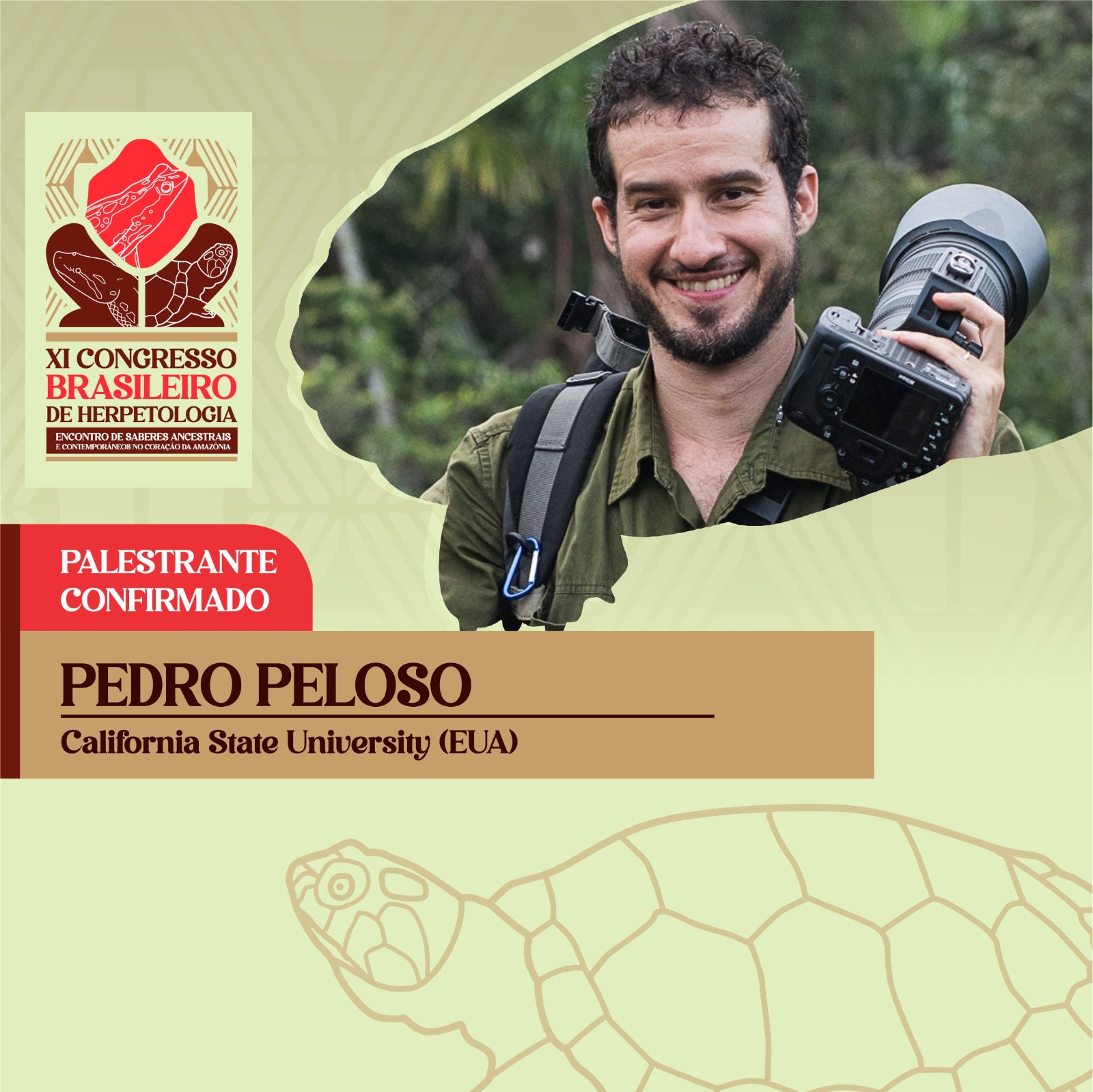
Pedro Peloso
He is a researcher and photographer specializing in the systematics and evolution of Amazonian herpetofauna. He is currently affiliated with California State University in the United States, where he develops projects focused on documenting the diversity and conservation of amphibians and reptiles. He is also the creator of the DoTS (Documenting Threatened Species) Project, an initiative that combines science and art to study and document endangered species in Brazil, promoting awareness and the preservation of biodiversity.

UỲRA
UÝRA, 33 years old, indigenous in diaspora, two spirits (transvestite), resident of Manaus, Amazonas – Brazil. She is a biologist, has a Master’s degree in Amazonian Ecology, and works as a visual artist and art educator for traditional communities. She lives in an industrial area in the middle of the forest, where she transforms herself to live as a walking tree, always created with organic elements. She has participated in more than 50 group exhibitions, both national and international, and has presented 5 solo exhibitions, including her debut at the Museum of Modern Art in Rio de Janeiro, Brazil, and the Currier Museum of Art (USA). She was featured at the 34th São Paulo Biennial, the Manifesta Biennial! (Kosovo), the 13th São Paulo Architecture Biennial and the 1st Amazon Biennial, as well as winner of the EDP Arts Award – Tomie Ohtake Institute, the 2022 PIPA Award, the 2023 SIM to Racial Equality Award and the 2023 FOCO Arte Rio Award. Uýra uses her body as a medium to tell stories of different Natures through photoperformance, performance and installations. She is interested in living systems and their violations, and from the perspective of diversity, dissent, functioning and adaptation, she (re)tells natural stories, of enchantments and diasporas existing in the forest-city landscape. His works are part of national collections, collectors’ collections and those of institutions such as Pinacoteca de São Paulo, Instituto PIPA, and international collections such as Castello de Rivoli (Italy), Institute for Studies on Latin American Art of New York (ISLAA), Currier Museum of Art and Los Angeles County Museum of Art (USA).
